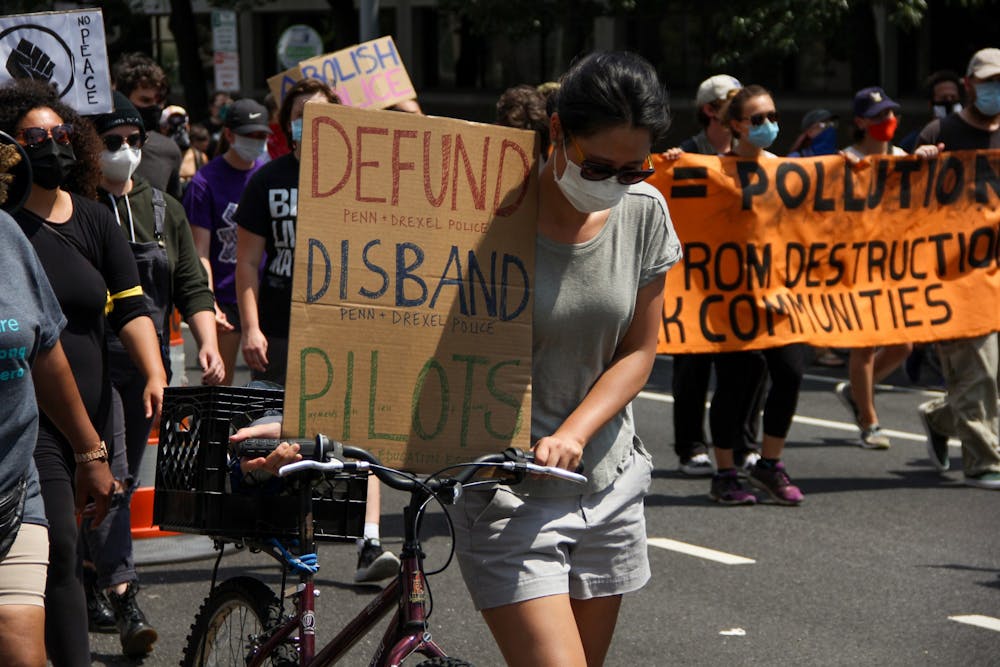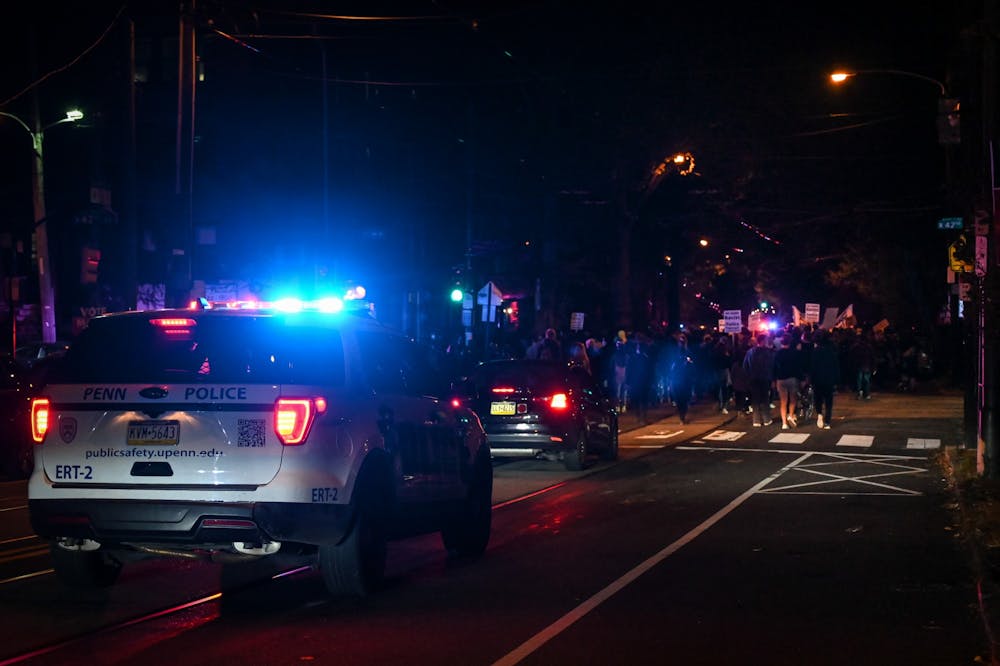Philadelphia police recently shot and killed Walter Wallace Jr., a 27 year old Black father and aspiring rapper who suffered from bipolar disorder. This event inspired a statement from University President Amy Gutmann, Provost Wendell Pritchett, and Executive Vice President Craig Carnaroli. Unfortunately, statements like these have become a common response to the unjustified—and often violent—deaths of Black people at the hands of police, and most of them are just performative.
Penn’s statement was no exception. Perhaps our administration knows that. After all, they say, “Words alone will not soothe [students, faculty, and staff of color's] anguish.” But this level of performative activism—if you can even call it that—especially hits home for a reason that the statement itself recognizes: “because it occurred in our West Philadelphia community.” President Gutmann's response becomes laughably meaningless when you consider the context: Penn has a long history of actively harming what they refer to as “our West Philadelphia community.”
The statement concludes with a list of “mental health and support services.” But the very first service offered is Penn’s help–line, which is run by the Division of Public Safety, otherwise known as the police. Yes, our university leadership states that they “know that this is a particularly fraught time for students, faculty and staff of color." Yes, they know that Walter Wallace died at the hands of police during a mental health crisis. But in that same understanding, it's suggested that Black people turn to that very same resource. This, at minimum, is extremely tone deaf—especially since Penn has failed to address Penn police’s discrimination against students on campus.
In addition, the statement only uses the word “Black” once, despite the fact that the violence that they are condemning occurred against a Black person. They instead use “of color," or people of color, which is a term Black people have criticized for being used to disguise what's really meant: police brutality occurs against Black people specifically.
President Gutmann and company then go on to say they're “remembering our common bond as a community” and offering their “unequivocal support” for “students, faculty and staff of color.” In reality, though, Penn’s “unequivocal support” is for the local Philadelphia police, which they continue to support and fund.
The UPenn Emergency Alert System, which has faced criticism for contributing to the harassment of Black people, has been criminalizing protesters by sending alerts warning students that protesters are in the area. Penn Police has been spotted blocking the streets and actively suppressing protesters who are out in support of Walter Wallace. This still occurs despite President Gutmann claiming that “Walter Wallace’s death is particularly hard for all of us at Penn.” They even did this during protests in response to the murder of George Floyd, and of course, the University released an equally performative statement then.
But maybe the “particularly hard” part of Walter Wallace’s death—at least for Penn—is acknowledging their responsibility in the tragic event. In a recent interview, Vice President for Social Equity and Community and University Chaplain Charles Howard, states that it’s “dangerous” to connect the University with the killing of Wallace. Perhaps it is also “dangerous” for the university to acknowledge their role in depriving the Philadelphia community—or specifically, the Black Philadelphia community—of resources. Or maybe it’s “dangerous” for the university to acknowledge years of funding and collaborating with the Philadelphia Police Department. Either way, if Howard, Gutmann, and the rest of Penn's "woke" leadership really cared about Walter Wallace, Jr., or Black people in general, these are “dangers” that they would have no qualms facing.
Howard then says, “Penn has a role in helping to wrestle with the painful intersections at the heart of this tragedy, including racism, mental health, and contemporary policing in our city.” That part is true—considering that Penn has had a major role in worsening these “painful intersections.” For starters, Penn doesn’t pay property taxes because they are a “nonprofit”, and are recipients of grant money that should be going to Philadelphia schools. This, among other tax abatements, has decreased funding for Philadelphia schools—leading to toxic environments for Philadelphia children—and has increased property taxes for the residents of the city.

Despite this, Penn has consistently refused to pay PILOTs, or “a payment in lieu of taxes.” Instead, Penn has a 27 million dollar budget for the Division of Public Safety and the Penn Police Department, and spends millions of dollars on political lobbying.
The statement says that there are “no easy solutions”—but frankly, there are easy steps to come to a solution. They could start by meeting the demands of Police Free Penn, which include paying PILOTs that are only .1% of Penn’s $14.9 billion endowment. They could start by materially supporting Black people on Penn campus and beyond, instead of thinking that do–nothing statements and “[transforming] Mercy Catholic Medical Center” are enough. None of these requests are remotely new. Countless organizations and people, including professors at Penn, have called for Penn to make these moves.
So, yeah, the statement is right about one thing: words alone aren’t enough. Without any actual action to support Black people in Philadelphia, or any acknowledgment of the harms they contribute to, this statement is just a slap in the face.

